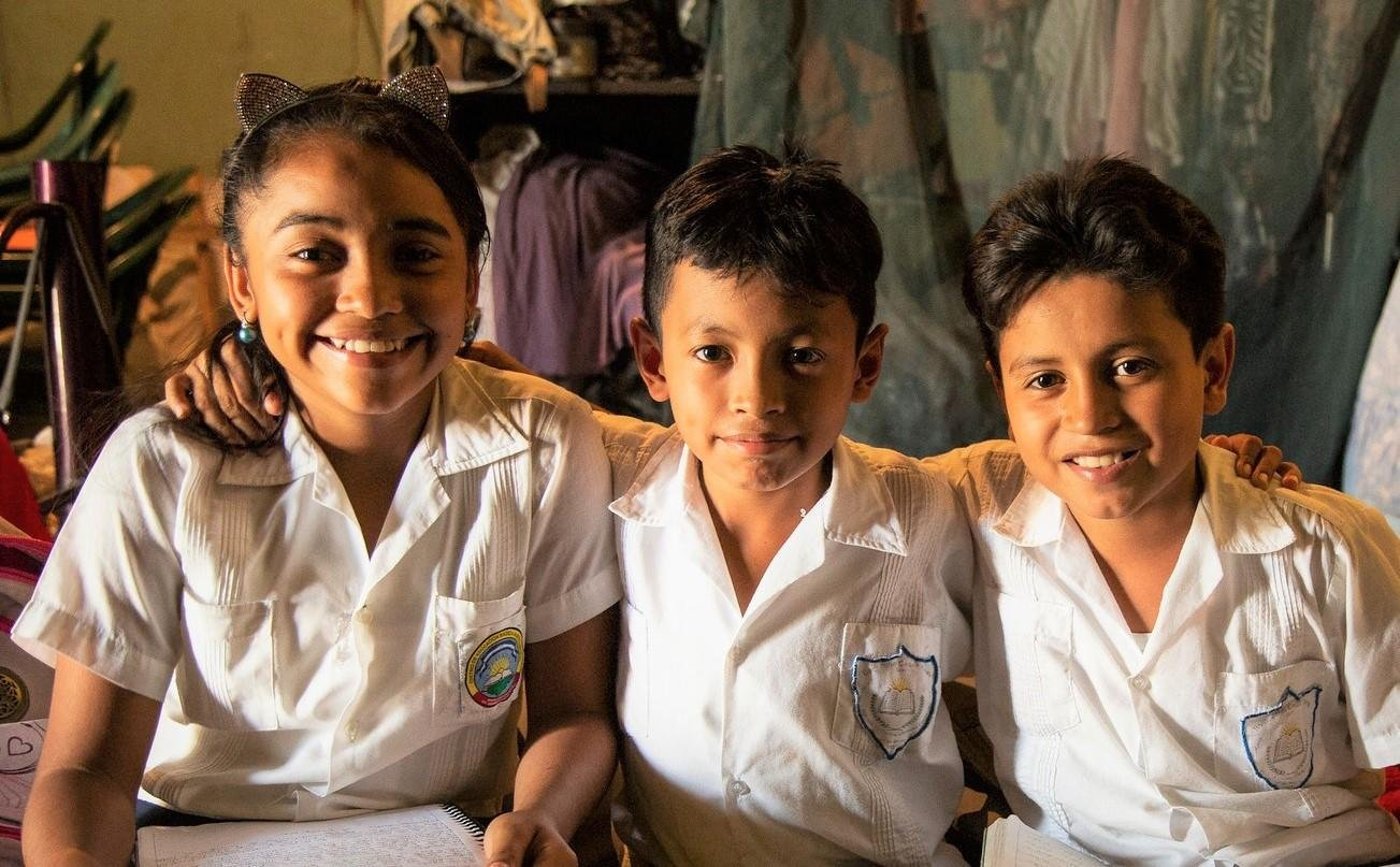All three are shy children. Sandy, 13, Jorge, 10, and Esteban, 9,* were not attending school when we first met them. But Sandy, the only girl, wanted desperately to go back to school, and the two brothers were keen to follow.
Sandy became a family leader after the killing of her oldest brother Juan*, 19. We asked the three children about their situation, but none of them wanted to talk about the environment of violence in which they had been living.
Family tragedy leads to flight
Three months ago, Sandy’s family fled their home in Choloma, north-west Honduras, following Juan’s death. Their troubles began after gangs moved into their neighbourhood and took control by terrorising residents.
“We feared for our lives,” Sandy’s father Jesus* recalls. “When gangs kill, no-one can say anything. The best decision is to run away.” Children and young people are often killed to terrify and control the population in Honduras.
Now, the family is living in a small place where the five of them sleep in the same room. One corner of the room is reserved for a picture of Juan.
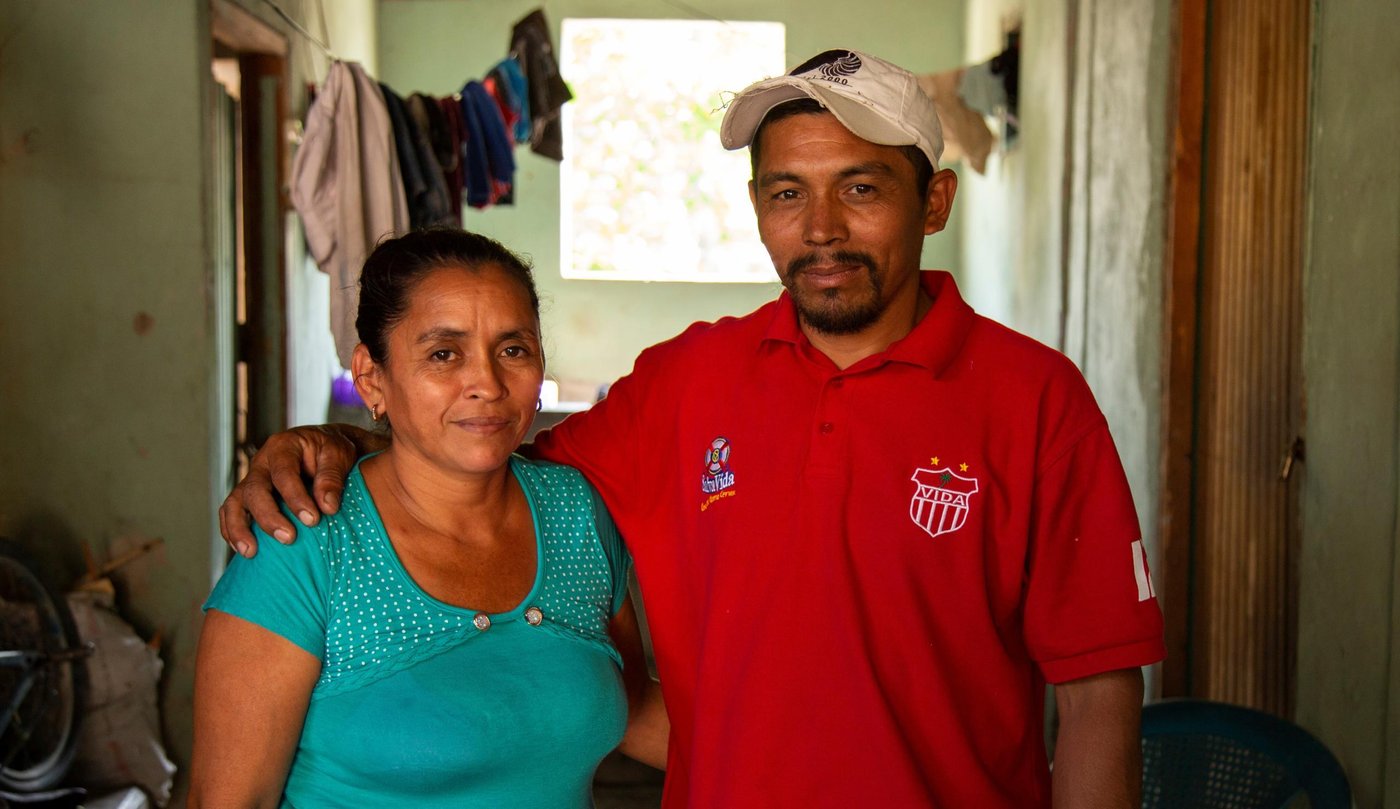
In the upheaval following their flight, Sandy, Jorge and Esteban stopped learning and attending school. But then, two months later, they met some staff from the Norwegian Refugee Council (NRC) who were conducting a door-to-door census looking for out-of-school children.
Sandy heard from us that there was an opportunity to go back to school. Her eyes shone and a smile spread over her face. “Yes, I want to study,” she said.
Learning amid violence
In Honduras and El Salvador, our main challenge is to guarantee children’s right to education in areas where the violence is comparable to conflict zones. We explain to displaced families that education is a right that brings hope, but sometimes we worry that we might be selling them only expectations. Hence, we try to show children and parents what is possible, but also what is realistic.
We ensure that children know they can play in their new school, but sometimes they also need to learn that the road to get to school is not always safe. We explain that criminal gang members regularly encourage minors to sell drugs, extort from teachers and students, and carry out recruitment, surveillance and intelligence activities.
Read also: When violence has taken control
In Honduras, criminal gangs have a devastating impact on children’s lives. To exert territorial control, these gangs restrict or prevent school attendance. They have managed to infiltrate to the core of some educational establishments, influencing the decisions of principals and teachers.
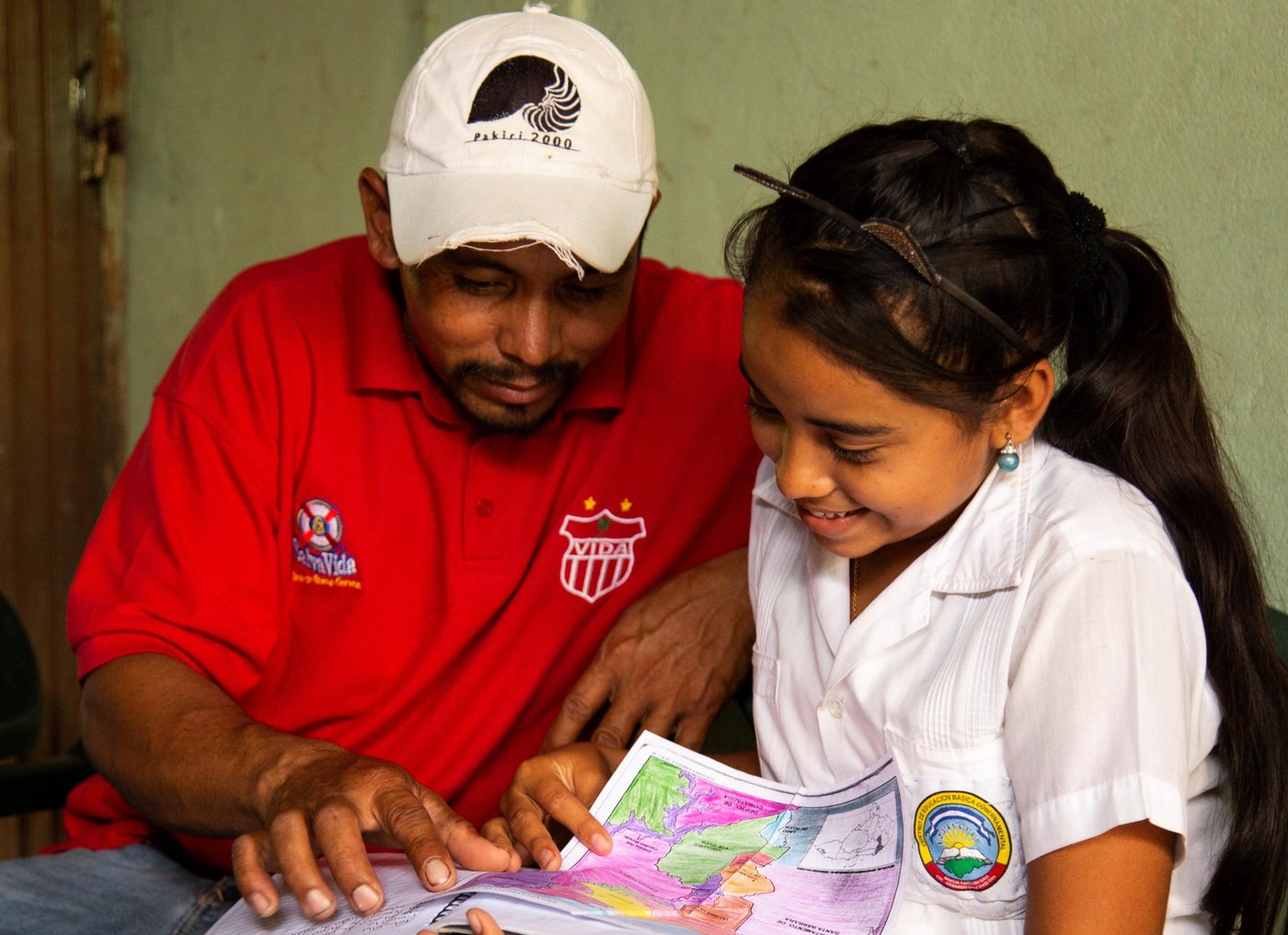
Finishing school in an environment of violence is not an easy task. However, Jesus knows that education is the only way to change his children’s situation.
“I just hope that my children achieve what I did not finish,” he says. “I want my children to graduate from school. It is the only way they can enjoy a different future.”
Half of children out of school
Carlos is the principal of the school where the siblings have recently started studying. He explains: “At least 13 youths have been killed in this area this week. None of us is totally safe in this neighbourhood. We have to take care of our children and do our best to make the school safe for them.”
Approximately 900,000 children are currently out of school in Honduras, according to a report by the Casa Alianza de Honduras. Factors include recruitment by criminal gangs, dangerous journeys, violence within schools, shortage of schools, lack of infrastructure, poverty and displacement. A recent NRC report suggests that, in urban communities affected by violence in Honduras, up to 50 percent of all children are out of school.
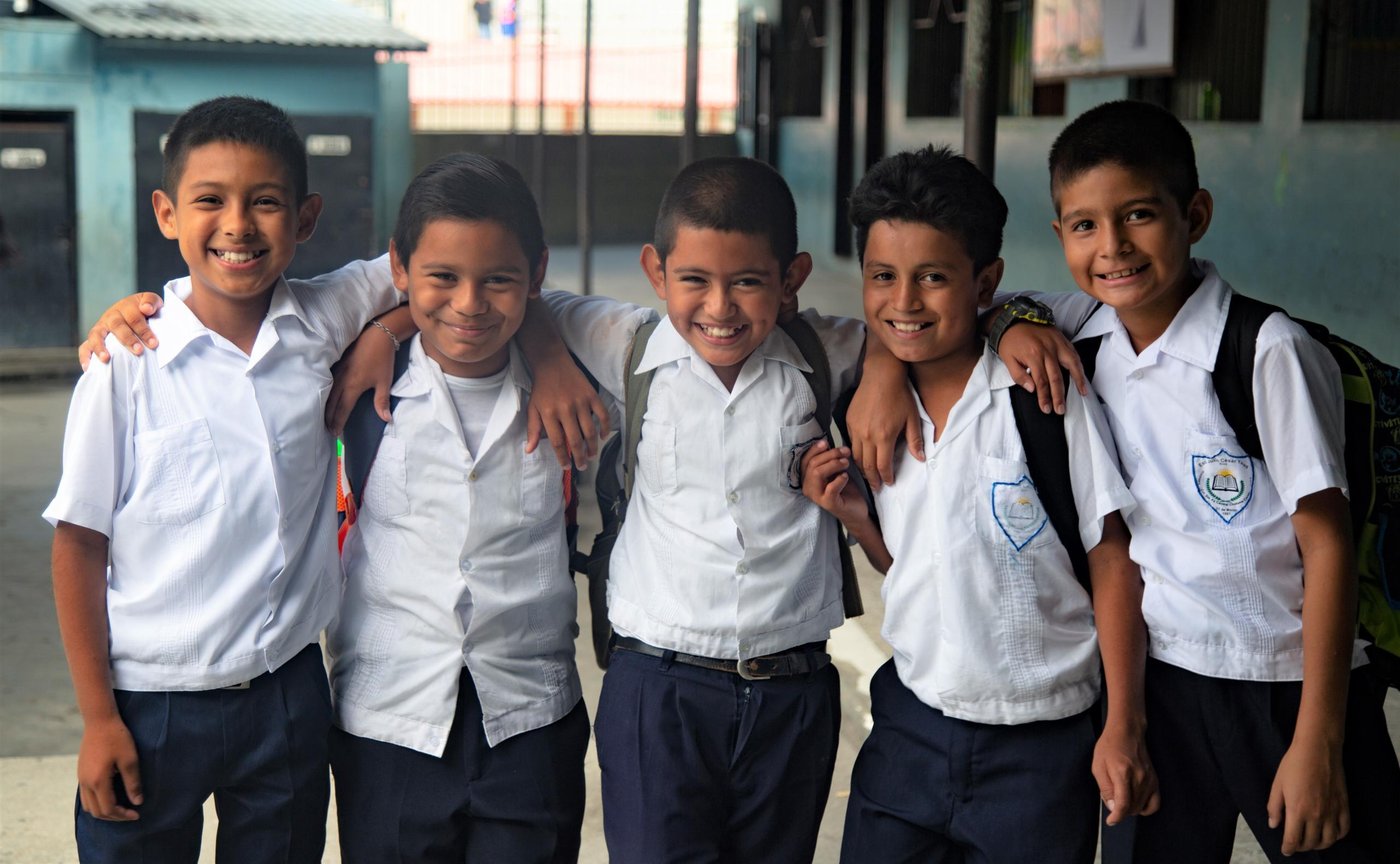
People affected by extreme violence need to understand their right to education, in order for them to know whether they are enjoying it. Children need to understand the quality they deserve, so they know if they are receiving quality education.
Families even need to be educated about difficult topics like violence. They often think it is normal that there is no peace in the streets around the school. But they need to know that this situation is not normal, and that they deserve peace. The entire world needs to understand that the situation in Honduras is not normal.
Read also: Violence has pushed thousands of children in Honduras and El Salvador out of school
“Last year, I was teaching a lesson and one of the students raised her hand,” recalls Jorge and Esteban’s teacher. “She said: ‘If the school is safe, then why are there armed forces at our school?’” Sometimes students ask hard questions, but we need to provide them with answers that give them hope for a better future.
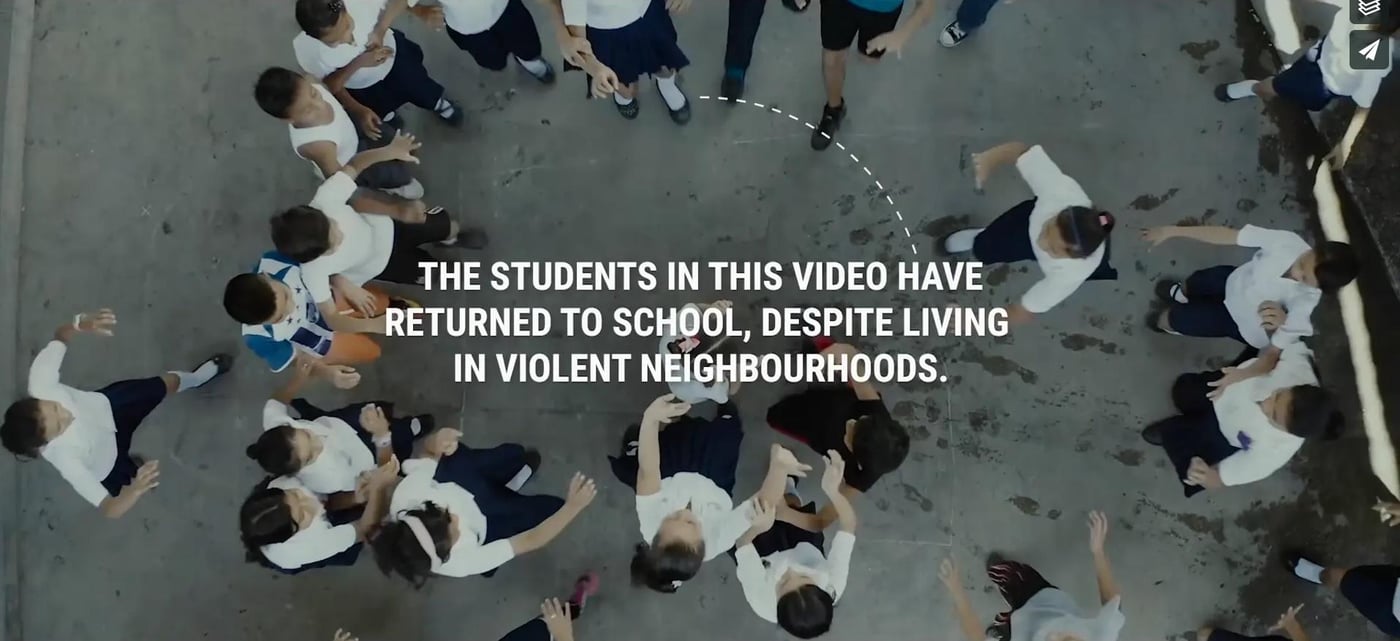
NRC has helped Sandy, Jorge, Esteban and hundreds of other children return to school thanks to funding from the European Union (EU).
Sandy and her brothers participated in motivational activities that work as a bridge between home and school. Children have fun and learn while we find a school for them. We also provide financial support so children can afford educational materials.
“Sandy was really happy with her new notebooks, uniform and schoolbag,” Sandy’s mother tells us. “One of her great longings is to finish school, something that I wasn’t able to achieve.”
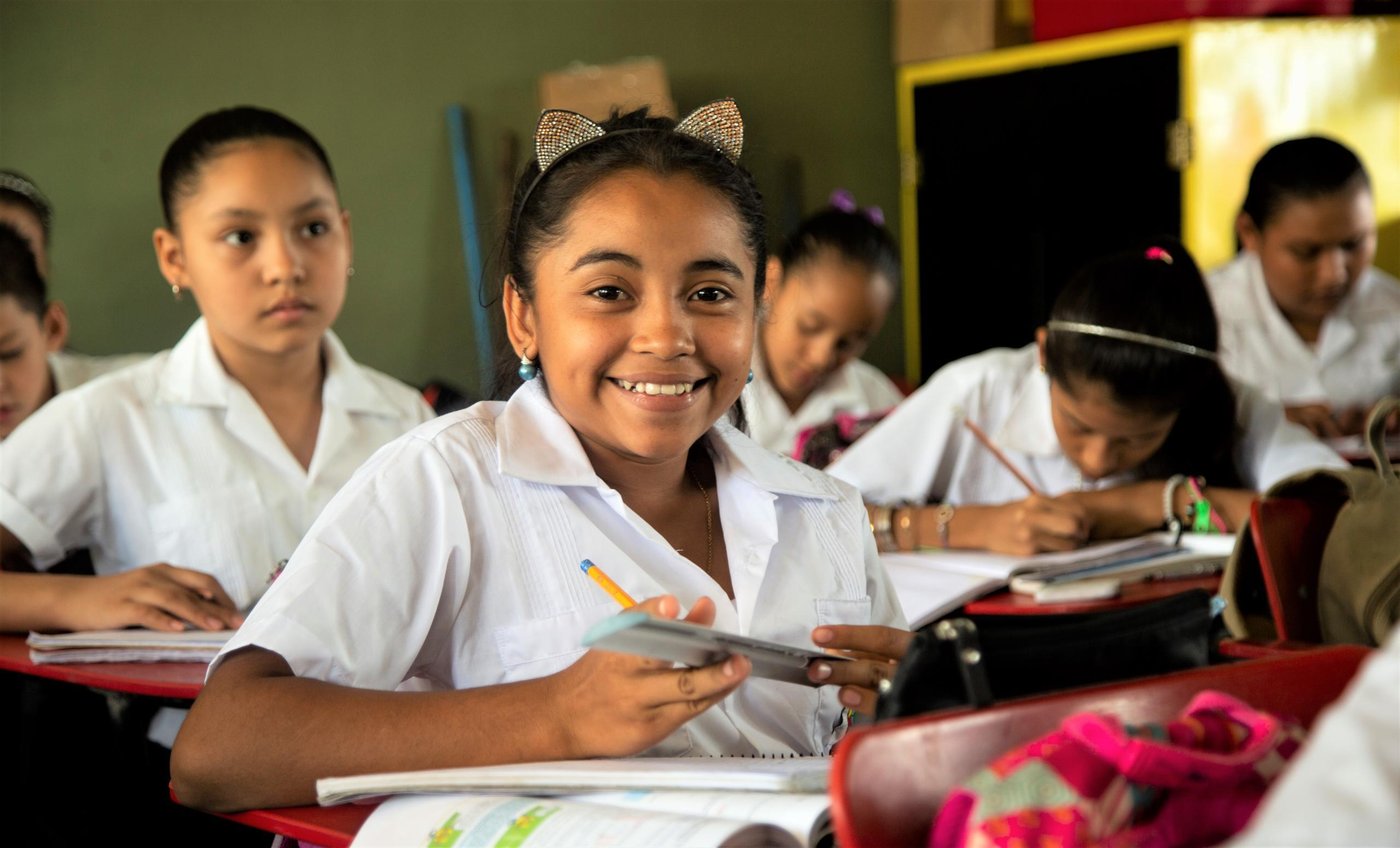
How we support out-of-school children
With support from ECHO (the Directorate-General for European Civil Protection and Humanitarian Aid Operations), NRC identifies out-of-school children and youths, and establishes study groups for those who want to continue their education.
We prepare children to resume educational activities and also help them to gain basic skills to remain safe. We particularly focus on those who are out of school or have had their education interrupted.
*Names have been changed for reasons of protection.


